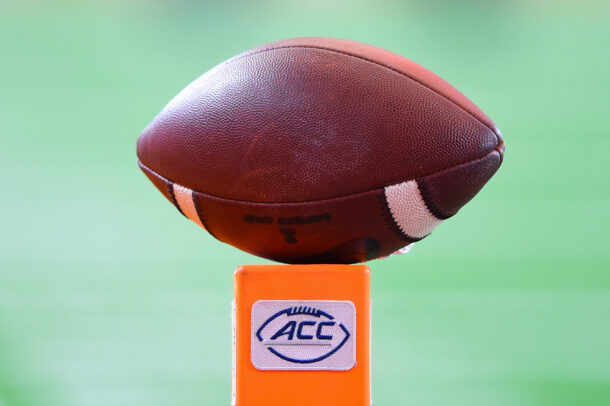
Friedlander: Reported deal that would keep FSU, Clemson and the ACC together is a win for everyone involved
The published reports are preliminary, containing very little in the way of detail. So let’s hold off on the celebrations and I told you so’s.
At least for a little while.
But it’s definitely an encouraging sign that there finally appears to be some substantive movement toward ending the contentious family feud between the ACC and its litigious members Florida State and Clemson.
The proposed settlement, first reported Tuesday night by Ross Dellenger of Yahoo!Sports, centers around a new revenue distribution structure based on “media value metrics” such as television ratings for football and possibly basketball.
There’s also talk of reducing the length of the league’s grant of rights by as many as 6 years, a compromise that would presumably end the lawsuits that threaten the ACC’s immediate future while allowing for early renegotiation of television contracts that are the root of the current discontent.
According to Dellenger, presidents from the ACC’s 18 member schools have met twice in the past 2 weeks to discuss a possible deal. The talks are the product of a court order, issued by the judge hearing FSU’s case against the ACC in Leon County, Fla., requiring the 2 sides to enter into mediation.
They are the first tangible sign that the Seminoles and Tigers would be willing to remain members of the conference if the right set of conditions are met. And that the league isn’t as dug in and ready to fight to the bitter end as commissioner Jim Phillips suggested during his forum with the media in Charlotte in July.
Jim Phillips on the ongoing lawsuits.
Full video pic.twitter.com/XVNbmWVIIj
— Bud Elliott (@BudElliott3) July 22, 2024
A revenue-sharing format that provides a larger piece of the pie to the highest revenue-generating programs isn’t universally beneficial. And it will be interesting to see if the league can get the required two-thirds of its membership to vote for its passage.
But combined with the ACC’s already-adopted “Success initiative” designed to reward teams for their performance on the field of play, it’s a plan in which everyone will ultimately win.
Everyone, that is, except the lawyers who will lose all those billable hours in the months and perhaps years it would take for the courts to settle this dispute, Drew Weatherford’s private equity firm hoping to bankroll FSU’s escape fund and the internet realignment trolls who will have to find something else to obsess about.
For smaller schools such as Wake Forest, Boston College and Georgia Tech, ceding a few extra dollars to their higher-profile rivals is a small price to pay for the security of remaining power conference programs.
They could easily be cast aside if the ACC were to dissolve, just as Washington State and Oregon State were when the Pac-12 fell apart last year.
For FSU and Clemson, the obvious payoff is an opportunity to close the growing revenue disparity between themselves and teams in the SEC and Big Ten, reported to be as large as $30 million per year.
But there’s also a security feature as well.
Even if the ACC’s 2 most valuable commodities were to be set free to sell themselves to the highest bidder, there’s no guarantee they’d find any suitors. The SEC already has a presence in Florida and South Carolina. And its commissioner Greg Sankey has said repeatedly that the league has no interest in expanding beyond its current roster.
“We’re focused on our 16. Period,” Sankey said during his league’s preseason media event this summer. “We can certainly remain at 16 for a long, long time and be incredibly successful.”
“16 is our today, 16 is our tomorrow,” – #SEC Commissioner Greg Sankey
Looks like ANOTHER #SEC expansion is unlikely despite #Clemson and Florida State rumored to be leaving the #ACC pic.twitter.com/9hveWSejX6
— The Verdin Verdict (@verdinverdict) July 15, 2024
The Big Ten, which now has 18 teams after adding 4 former Pac-12 survivors, is just as uninterested in getting larger. That would leave the Big 12 and the new glorified Mountain West as the only potential landing spots. Neither of which would be any more financially lucrative than the ACC.
As for the conference, a settlement that gives in to at least some of the demands FSU and Clemson have been proposing isn’t exactly a preferred outcome. But it sure beats the doomsday scenario of the judge in Florida granting the Seminoles’ motion for a partial summary judgment that opens the door for everyone to leave.
Even in the best case, it could be years before that lawsuit, or the 2 others in North and South Carolina, can be adjudicated and appealed. It’s not in anybody’s best interest, let alone a conference that’s already behind the financial 8 Ball, to fight a war of attrition costing millions of dollars that could be put to better use elsewhere.
As any successful coach will tell you, it’s often more prudent to punt and play a field position game rather than gambling and going for it on 4th down with plenty of time left on the clock.
There’s still a lot we don’t know about the proposed settlement reportedly on the table. But what we do know makes sense and allows the ACC, Florida State and Clemson to all declare victory and live in peace again for at least the next 6 years.
If not happily ever after.
Award-winning columnist Brett Friedlander has covered the ACC and college basketball since the 1980s.







